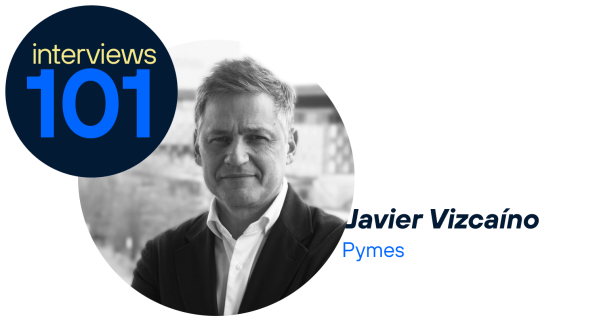What does your job at Telefónica involve?
I am currently the manager of Talent Incorporation and Employer Branding at Telefónica Spain. Our team is responsible for the process of incorporating new professionals into the company and for mobility and internal growth from end to end, based on the needs of the different business units of the company to cover vacancies.
This includes generating vacancies, recruitment, compensation where appropriate, hiring and the professional to the company or to their new position within it, thus promoting internal on boarding mobility.
In this way, we ensure a global vision and align priorities and interests to favour a smooth, efficient and satisfactory experience for candidates and for the organisation.
What is the role of an HR department?
HR departments can be organised differently depending on the company in question, but their objective should be to ensure that the needs of the company’s professionals are met and to promote the performance of their activity in the best possible conditions.
Within an HR department we normally find the following disciplines:
- Organisation.
- Labour Relations.
- Talent Acquisition.
- Training and Development.
- Compensation.
- Payroll and benefits management.
- General services.
- Culture.
- Occupational health and risk prevention.
- People Analytics (recently created in companies with a high volume of employees).
How does this nomenclature differ from others that can be used, such as People? Is it a purely formal question or is there a difference in substance?
I understand that the change in terminology reflects how companies currently see and treat their employees. They are no longer just ‘resources’ to achieve specific business objectives, but people who need to be cared for and developed to meet their needs and obtain the best results.
Investing in the development and well-being of talent has a direct impact on performance and success. People management is about creating an environment where professionals can learn and grow to give the best of themselves. In this way, organisations can ensure they have a highly competent and committed team, capable of facing challenges and taking advantage of opportunities.
Going into more detail, what is the relevance of carrying out an on boarding process for people joining a new organisation?
On boarding is fundamental in the process of hiring new employees as it generates engagement from the start and promotes integration into teams and the organisational environment.
At Telefónica España we take great care of this phase of the process with personalised attention together with their manager, with whom we ensure that they understand their roles and responsibilities from the start in order to help them develop their skills as quickly as possible.
During the on boarding sessions, they have access to direct information about the company, visits to the company’s most emblematic places and talks by the organisation’s managers that give them a strategic vision that is fundamental to their knowledge and fosters the organisational culture by transmitting Telefónica’s values, mission and vision.
In addition, they are given a welcome pack where they can find all the necessary tools and accesses to help them get started in their role, as well as all the links of interest for their personal/professional management or to resolve any incidents that may arise in the first days of their incorporation.
It has been proven that good on boarding encourages employees to stay longer in the organisation because they feel integrated from the beginning.
What is the most effective way to attract, select and incorporate the best talent?
In recent years, the profiles we need in the organisation have undergone a major change and this has led to a transformation in the way we attract, recruit and retain.
The selection process must adapt to the characteristics of the generations and, in a digital world, the way of satisfying the needs of the candidates and the organisation must be done in the same way. The incorporation of technologies and the digitisation of companies have allowed for adaptation and the arrival of the new profiles demanded.
We have evolved from a traditional selection concept, physical personal interviews, CVs sent by post or email, to working with integrated HR management systems, technological employment websites that filter searches and the application of AI in selection processes to increase their effectiveness and that of the work of the talent recruitment teams.
It is equally important to know how to process all the information generated in the selection processes and to maintain personalised attention at all times.
At Telefónica Spain, almost all the profiles recruited are in technology, so the low rate of students in STEM degrees and the high competitiveness of the market means that there are not enough active professionals to recruit.
This forces us to maintain a competitive offer where they can develop their skills and knowledge and with personalised and constant career plans to retain the best talent.
New ways of working and promoting diversity in teams are also positive when it comes to generating engagement and well-being for professionals.
What professional skills does a person working in HR require?
Human resources professionals come from such diverse academic backgrounds that it is sometimes difficult to generate homogeneity of criteria and skills.
However, for non-specialised degrees in the field, there are multiple postgraduate courses and master’s degrees that provide practical training for these professionals, facilitating the task of unifying criteria.
If I had to highlight, in my opinion, and beyond the technical knowledge of selection, training, HR, organisation, culture, payroll, compensation, analytics, etc., what are the skills of People Specialists, I would say that they are well-developed communication, negotiation and business understanding skills, personal credibility, being able to generate trust, fulfil their commitments, be precise and have integrity in their work as well as being flexible.
It is essential to be involved in the business, to be part of the culture in order to transmit and promote it, to have first-hand knowledge of the problems that employees may have and how to solve them.
We must not forget that we are participants in the growth and development of people within an organisation, so it is important to get to know our talent, to boost them in their professional career to achieve the best business results.
Who is the person working at Telefónica that you would nominate for this interview that you consider excellent in their work?
Javier Espadas Santiuste, Director of Development and Strategic Projects at Telefónica Spain.









